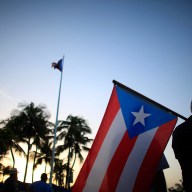KANDAHAR, Afghanistan – Canada has been nurturing quiet diplomacy on the Afghan-Pakistan border, an initiative that is gaining momentum but one that Ottawa appears loath to discuss or take credit for in public.
Diplomats and government officials on both sides of the troubled border are effusive in their praise of the Canadian-launched co-operation initiative that began last fall with a secret meeting of officials in Dubai.
There have been several follow-up discussions, including high-level meetings in Islamabad last month and within the last few days in Kabul, where the Afghans and Pakistanis discussed economic development, the movement of people and customs in the border area.
There was enough goodwill for the new government in Islamabad to recently put out a statement quoting Pakistan’s foreign minister, suggesting the two countries “convey the same message on issues of mutual interest” at a major donors’ conference in Paris next week.
It is among the first tangible signs that Canada is bringing to bear the country’s respected diplomatic skills in the Afghan war.
The Conservative government has been low-key about the so-called “Dubai Process,” even though it was chastised in the Manley Commission report for not doing enough on the diplomatic front and for keeping Canadians in the dark about the Afghan mission.
Asked why there has been so little publicity on the discussions back in Canada, Ottawa’s civilian representative in Kandahar suggested the process is still fragile.
“It has a lot of potential, you know, (but) it’s also one of those things that you also want to let it flourish,” Elissa Golberg said in an interview with The Canadian Press.
“These are the kinds of discussion you want to nurture.”
“It’s an interesting process and it’ll take time, but they’re keen to work with each other on technical issues.”
There have been passing references to the process in speeches last fall by Prime Minister Stephen Harper and as recently as last week, when Canada’s ambassador to Afghanistan, Arif Lalani, spoke to the weekly mission briefing at Foreign Affairs.
But there has been no clear, concerted effort to reassure the public that diplomacy – one of Canada’s strong suits – was showing hopeful signs in Afghanistan.
A political source in Ottawa said there was reluctance to take full “ownership” of the initiative right now because it still isn’t clear “how it will turn out.”
A senior Ottawa bureaucrat, who did not want to be named, described the discussions as “baby steps” toward Afghanistan and Pakistan eventually addressing larger issues, such as the deadly insurgency and the emotionally explosive question of their common border.
The 2,640-kilometre border, known as the Durand Line, is a major source of tension, partly because of the way it was drawn and the divisions it creates between Pashtun tribes, who have populated the region for centuries.
The British forced the Amir of Afghanistan to accept the line in 1893, but when Pakistan gained independence in the late 1940s, the government in Kabul declared the border invalid and has refused to recognize it ever since.
The bitterness was on full display last year with Pakistan’s President Pervez Musharraf’s calling for the building of a fence and the possible mining of the border.
“If we want to have constructive discussions and encourage co-operation between the two, (the border) is not necessarily the first thing you focus on,” said Golberg, a senior diplomat in charge of Canada’s civilian efforts in Kandahar province.
“There are issues they know they need to talk to each other about. You don’t necessarily have to talk about the Durand Line.”
Canadian embassies in Islamabad and Kabul have been holding concurrent talks with each government about “what issues make sense to bring to the table,” Golberg said.
The dialogue compliments regular military contact that have happened between NATO and the Pakistani Army.
Gen. David McKiernan, the new U.S. commander of the 51,000-strong international force, said Wednesday that he wanted to resume the military dialogue.
Although no agreements or treaties have come from the discussions, there have been noticeable shifts in what were once intractable attitudes.
The Afghan defence minister, Gen. Rahim Wardak, had been a strident critic of Pakistan’s efforts to quell the insurgency in Pashtun-dominated tribal regions. But he was quoted by Afghan media recently as saying that improved socio-economic conditions on both sides of the border are the key to ramping down the violence.
Golberg said cross-border trade can be a key element in making lives better.
Canada has poured a lot of money into restoring Kandahar’s agricultural sector and Goldberg said there needs to be a market for the crops, with Pakistan being the logical choice.
















